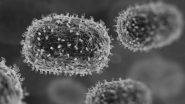Canberra [Australia], May 1 (ANI): A study led by the University of South Australia researchers found causal genetic evidence that influences the amount of coffee consumption in people.
In a world-first study of 390,435 people, conducted in partnership with the South Australian Health and Medical Research Institute (SAHMRI), the team found that people with high blood pressure, angina, and arrhythmia were more likely to drink less coffee, decaffeinated coffee or avoid coffee altogether compared to those without such symptoms and that this was based on genetics.
Lead researcher and Director of UniSA's Australian Centre for Precision Health, Professor Elina Hypponen said it is a positive finding that shows genetics actively regulate the amount of coffee a person drinks and protect people from consuming too much.
"People drink coffee for all sorts of reasons - as a pick me up when they are feeling tired because it tastes good, or simply because it is part of their daily routine," Prof Hypponen says.
"But what we do not recognise is that people subconsciously self-regulate safe levels of caffeine based on how high their blood pressure is, and this is likely a result of a protective genetic mechanism."
"What this means is that someone who drinks a lot of coffee is likely more genetically tolerant of caffeine, as compared to someone who drinks very little.
Conversely, a non-coffee drinker, or someone who drinks decaffeinated coffee, is more likely prone to the adverse effects of caffeine, and more susceptible to high blood pressure, as per the study.
In Australia, one in four men, and one in five women suffer from high blood pressure, with the condition being a risk factor for many chronic health conditions including stroke, heart failure and chronic kidney disease.
Using data from the UK Biobank, researchers examined the habitual coffee consumption of 390,435 people, comparing this with baseline levels of systolic and diastolic blood pressure, and baseline heart rate. Causal relationships were determined via Mendelian randomization.
Prof Hypponen says how much coffee we drink is likely to be an indicator of our cardio health.
"Whether we drink a lot of coffee, a little, or avoid caffeine altogether, this study shows that genetics are guiding our decisions to protect our cardio health," Prof Hypponen says.
"If your body is telling you not to drink that extra cup of coffee, there's likely a reason why. Listen to your body, it's more in tune with your health than you may think." (ANI)
(This is an unedited and auto-generated story from Syndicated News feed, LatestLY Staff may not have modified or edited the content body)













 Quickly
Quickly

















